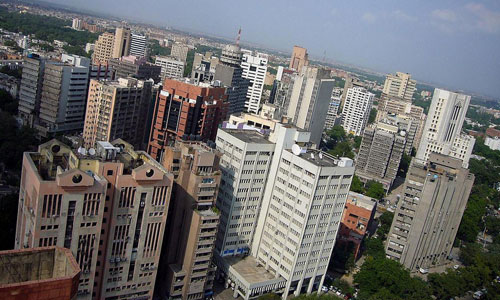 Rising cost and falling transactions are taking their toll on the property market in both the Delhi-NCR and Mumbai. Delhi and Mumbai have slipped from their third and fifth place in last year’s list of real estate investment opportunities to 15th and 12th position respectively in 2012, said a real estate investment forecast Emerging Trends in Real Estate Asia Pacific 2012, which is jointly published by the Urban Land Institute (ULI) and PwC.
Rising cost and falling transactions are taking their toll on the property market in both the Delhi-NCR and Mumbai. Delhi and Mumbai have slipped from their third and fifth place in last year’s list of real estate investment opportunities to 15th and 12th position respectively in 2012, said a real estate investment forecast Emerging Trends in Real Estate Asia Pacific 2012, which is jointly published by the Urban Land Institute (ULI) and PwC.
Bangalore, on the other hand, maintained its position as the tenth most favoured investment destination. “Bangalore’s organic, growth driven market and ability to buck mega trends has helped it retain its credentials as a stable play and maintain its position on the list,” said the report.
According to the report, the vacancy rates in Mumbai are likely to remain stable through the close of 2011 and into 2012. Absorption will again be positive next year, but rental values remain questionable as economic and inflationary issues continue to linger. “In New Delhi, inflation has continued to spike costs, and it may not be economically feasible to build there. Ongoing funding problems do provide investment opportunities for private equity investors,” said the report.
“In the medium term there is a secular steady state trend given India’s favourable demographies. Even post 2009, when the real estate markets were bottoming out in India, there were bursts of demand at every price correction. This clearly demonstrates latent demand. However short-term pain is here to stay until the regulatory processes get streamlined, approvals resume, interest rates improve and more liquidity gets introduced,” said Jai Mavani, leader, infrastructure and real estate at PwC India.
However, the long-term solution can only come through reforms, both regulatory and financial. The real estate regulation bill that is on the anvil is a step in the right direction although the content needs some tweaking to prevent over regulation.
The report maintains that India’s consumption driven economy makes it a safe destination for real estate investment. With the market expecting to bottom out sometime in the last quarter of this fiscal, debt funding drying up and recession expected to cut inflationary pressures on commodities, it will translate into attractive investment option for private equity players looking to get India back on their agenda.
With sales volumes stagnant and rising labour and commodity prices also squeezing finances, developers also are now expected to turn to private equity funds as a last resort. Incoming capital is expected to rise in the following year. If it does, it will represent a significant turnaround for a market that foreign private equity investors have largely shunned since the onset of the global financial crisis.





